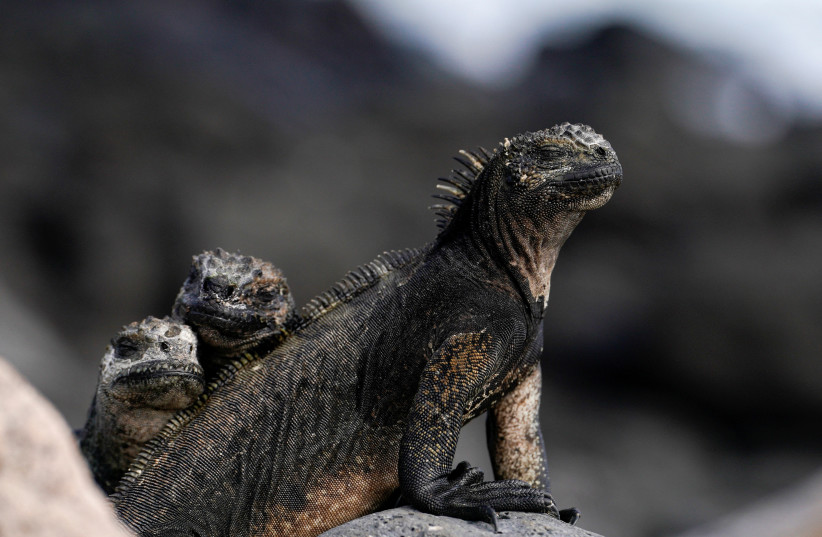A toddler was enjoying some cake on a beach while on holiday until an iguana attacked her and stole her cake.
The 3-year-old girl developed Mycobacterium marinum infection from the Iguana bites. Her doctors are set to report a study on the case at the upcoming European Congress of Clinical Microbiology & Infectious Diseases (ECCMID) in Denmark, set to take place April 15-18.
The authors stated their belief that this is the first time that the infection was spread through iguana bites, as until now it had only been known to spread through open wounds coming into contact with contaminated water.
The girl was rushed to a local hospital where doctors originally diagnosed her as having a superficial wound on the metacarpal bone of her middle finger. She was given a five-day course of antibiotics as a preventative treatment for salmonella exposure, which can be experienced after a reptile bite.
Five months later, despite antibiotic treatment helping to heal the wound quickly, the toddler was taken to Stanford Children’s Health Hospital in the United States. The parents of the girl noticed welts on the back of the toddler’s hand where she had been bitten. The skin was red and painful.

The hospital conducted an ultrasound where they found a mass under the skin. Surgeons removed the mass and the discharge led them to understand that the girl had an infection.
The skin had died, and the doctors noticed necrotizing granulomatous inflammation around the wound. This led doctors to conduct a culture test of the area which resulted in the toddler being diagnosed with Mycobacterium marinum.
What is Mycobacterium marinum?
Mycobacterium marinum is a bacteria that is resistant to multiple antibiotics, including the preventative antibiotics the girl was originally given.
“M. marinum prefers lower temperatures (30◦C) for optimal growth, and it’s highly likely that the cold-blooded iguana, with body temperatures ranging from 22-37◦C, may sustain these microbes as reservoirs,” explains lead author Dr. Jordan Mah from Stanford University School of Medicine, California.
He continues, “The bite resulted in colonization by a bacterium rarely found in humans, and demonstrates that iguanas may be carriers of harmful bacteria capable of producing severe infections. This may help inform health care professionals of less commonly known bacterial infections following unusual zoonotic exposures."
“While organisms that cause infection after dog or cat bites are well known, the microbiological cause of infected wounds secondary to iguana bites is limited to a few case reports, with Serratia marcescens and Staphylococcus aureus most often implicated. Salmonella enterica is also possible, given 75-90% of both wild and captive reptiles (including snakes, turtles, and iguanas) are colonized with these bacteria,” Dr. Mah added.
The girl was then given rifampin and clarithromycin, which helped the infection.
